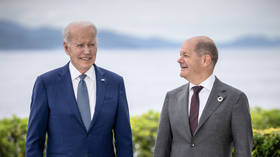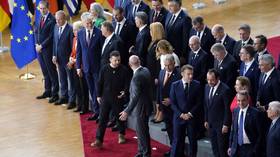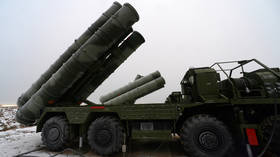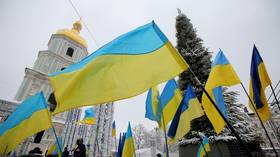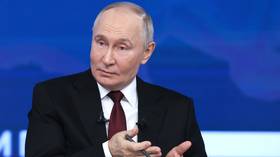Germany could partially nationalize key weapons maker – media
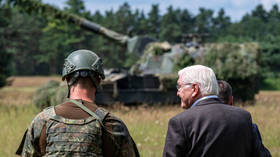
The German federal government is considering taking a stake in arms manufacturers and defense projects in “strategic cases,” the Handelsblatt, a business newspaper, reported on Thursday, citing a summary released by the economy and defense ministries.
The outline reportedly comes as part of Berlin’s broader agenda, aimed at strengthening the nation’s weapons industry as the EU’s economic powerhouse continues to bolster its defense sector amid the dramatic escalation in Russia-NATO tension which has played out since the beginning of the Ukraine conflict.
According to the report, the proposed strategy, if adopted, would allow Germany to take stakes in companies and projects that are seen as strategically important more frequently. The federal government currently holds a 25% stake in the defense electronics manufacturer Hensoldt.
In June, Reuters reported, citing unnamed sources, that the German state lender KfW and private equity firm Carlyle were in talks to jointly buy a majority of Thyssenkrupp’s warship division. The milestone deal is expected to be agreed upon by next month, if all parties approve.
With the fourth-largest active military in NATO, Germany had previously announced plans to station US cruise missiles on its soil from 2026. The deployment of nuclear-capable weapons had been banned under the Cold War-era Intermediate-Range Nuclear Forces (INF) treaty, but the White House pulled out the agreement in 2019.
Germany and its fellow EU nations have been massively increasing their defense spending, citing the ongoing Ukrainian conflict as a major reason for the move; it has filled the order books of arms-makers such as Rheinmetall and Hensoldt, and sent share prices soaring.
Berlin has been the biggest backer of Ukraine in the EU, providing and committing military assistance of at least €28 billion ($30.3 billion) in current and potential pledges. Germany’s ammunition supplies to the country cover advanced military equipment, including Leopard 2 tanks, Marder infantry fighting vehicles, and US-made Patriot air defense systems.
